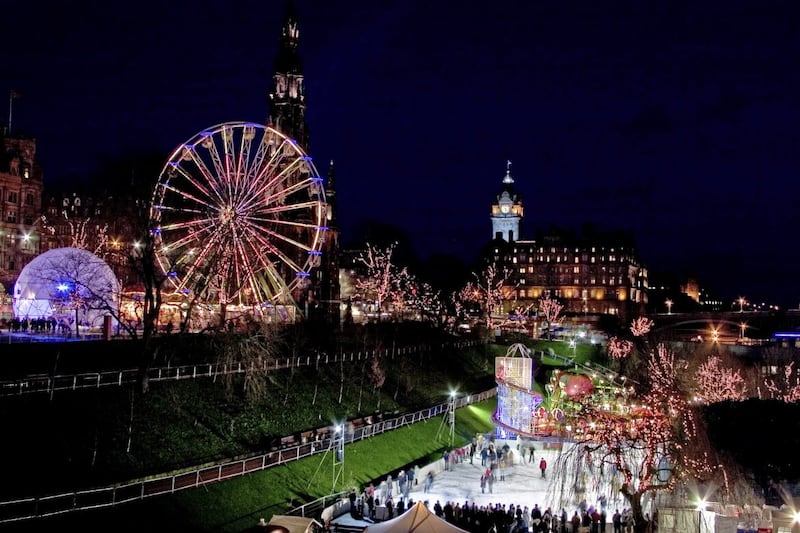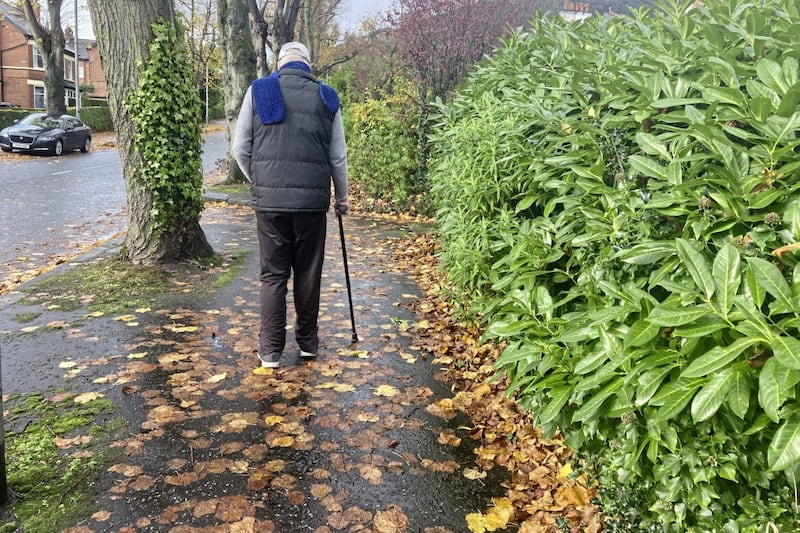THURSDAY of this week might pass over as any other recent Thursday – concern about Covid, worry about finances, missing beloved members of the family who have passed on...
Perhaps there will be some talk of the Belfast Blitz as it’s the 80th anniversary of the night 180 German bombers took off from from northern France and at 10.40pm flew low over Belfast raining down their lethal load of bombs and landmines, ripping it apart, especially the Antrim Road, New Lodge and lower Shankill.
On that Easter Tuesday night the thought was they mistook the Waterworks park, with its two reservoirs – at that time bigger than they are today – for Belfast harbour.
A number of years ago I talked to people who remembered that awful night and their stories were horrifying.
John Campbell was five that Easter of 1941, his father was on fire watching duties. When the alarm was raised, instead of going into the shelter outside their home, his mother took the family round to his granny in the next street.
“The shelter outside our house suffered a direct hit and everyone was killed.”
He painted a vivid picture. “I remember seeing a man wearing a shirt with no collar, a cigarette sticking out of his face, throwing what I thought were rags into the corner but it was bits of bodies.”
In the Oldpark there was a direct hit on a street where a wake was happening in one house, the coffin and the corpse were found the next day further up the road in the school grounds.
To the north of the city, destruction was dreadful and many lives were lost; in the eerie stillness next morning people walking over the rubble could hear the clocks chime the hour below their feet. There was a report of an Alsatian dog running away with a dead baby in its mouth, thankfully rescued and left with the soldiers with a note, "body found on York Street".
Gerry Hobbs told me he was a member of St Gall’s Boys School choir who were guest artists that night in the Ulster Hall. He remembers they had just performed and were mixing with the audience, almost 1,200 eager people all waiting for the main performer, Delia Murphy, to appear, little realising she would be instrumental in saving their lives within a couple of hours.
:: The horror unfolds
"It was then that we heard the shocking announcement that Belfast was being hit by an air raid and it was advisable not to leave the hall. Everyone was so nervous and uncertain as just what to do.”
The build-up to the Céilí Mór was massive, posters everywhere, especially around west Belfast – The Johnston School of Irish Dancing, David Curry’s Irish Rhythms Orchestra and Delia Murphy, Ireland’s Queen of Song.
St Malachy’s GAA club had booked the hall but there was unease in the city and, sure enough, shortly before Delia Murphy stepped on stage the drone of German bombers was heard advancing on the city.
Two young Belfast men, Leo Wilson from Andersonstown and his mate Harry Kavanagh, arrived just before eight o’clock.
“We took to the floor every time a dance was called as we waited for Deila. We became friendly with a man who was a fire watcher and it was the first time he’d seen Irish dancing. About 10.15 Delia appeared to a great roar of applause and for the next 30 minutes or so she sang some of her best known songs.”
I sat with Leo in his home in Andersonstown and even at 90 he lived the memory.
“Suddenly we heard a lot of noise coming from the main entrance so Harry and I went to see what was happening. An air raid warden made straight for the stage and when the crowd calmed down he told us that German planes had been bombing the shipyard and the aircraft factory.
“He told us that no-one would be allowed to leave except members of the ARP (Air Raid Precaution), nurses, first aid workers or trained medical personnel.”
On stage Delia Murphy called to everyone to be calm and she began to sing. Ballad after balled filled the air and when she stopped she told the band to strike up and the dancers to take the floor.
“The fire watcher asked if we wanted to view the city from the rooftop – of course, we accepted. The scene was one of absolute horror; the entire city seemed to be in flames. We could see German planes as they swooped down, we watched as buildings burst and debris was sent skywards.”
The friends turned to the west where they lived.
“Our first view was of the Twin Spires of St Peter’s; they were outlined against a background of flames and smoke. Unfortunately an air raid shelter in Percy Street got a direct hit – 30 people died. In Cavendish Street six houses were destroyed. We told no-one of what we’d seen. It would have caused a panic.’
:: Meanwhile Delia kept singing
“Then David Curry would strike up the orchestra, fully aware that the music and dancing and Delia’s singing would help to keep the sound of the planes overhead blocked out. The old motto, the show must go on was never better upheld than it was by Delia Murphy on Easter Tuesday night April 15/16 1941.”
Gerry Hobbs also recalls Delia Murphy taking over.
"She entertained the crowd for hours – The Spinning Wheel, If I Were a Blackbird, The Star of the County Down, all the popular songs of the day as bombs and incendiaries fell for four long hours.”
The people were united in grief. Bodies were buried in Milltown Cemetery and the City Cemetery; no-one knew their denomination. It had to be done.
Fire brigades came from the Republic to help fight the raging flames and, like Deila, that gesture was never forgotten after a Thursday night and Friday morning when almost 1,000 people were killed, 1,500 injured and 100,000 left homeless. Eighty years ago this week.










